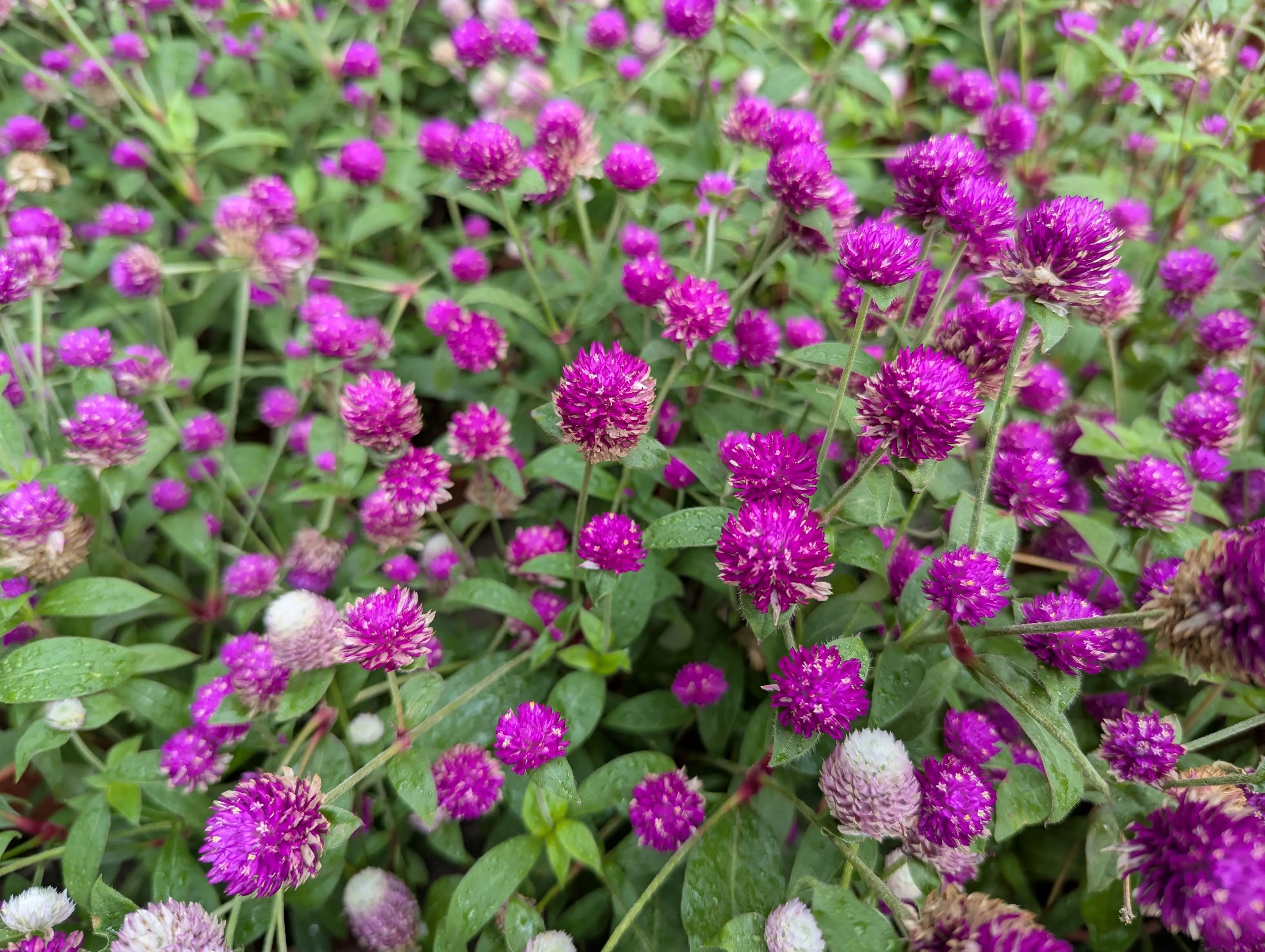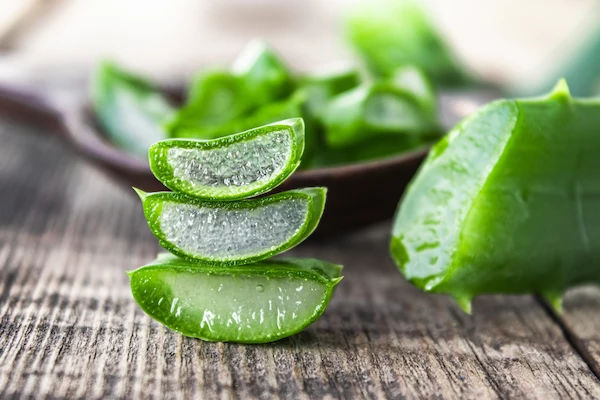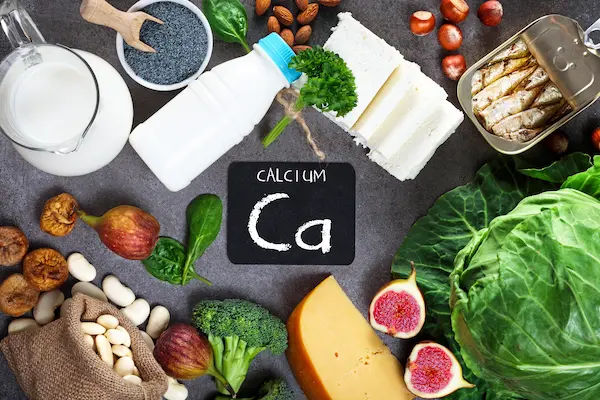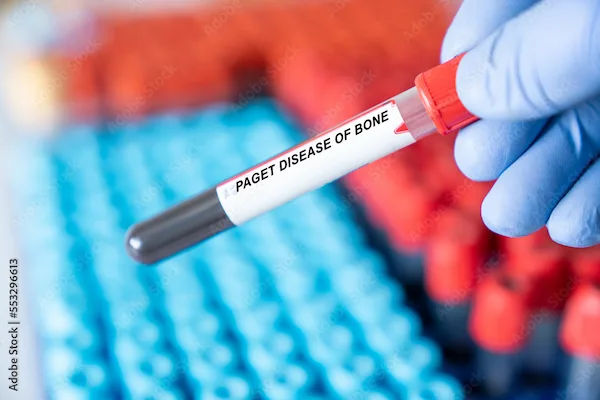Punarnava: Health Benefits, Uses And Side Effects Explained
Learn about punarnava benefits, safe uses, and side effects. Get expert tips on ayurvedic herbs and the truth about kidney detox.

Written by Dr. J T Hema Pratima
Reviewed by Dr. Rohinipriyanka Pondugula MBBS
Last updated on 13th Jan, 2026

Introduction
Punarnava (Boerhavia diffusa) is a popular plant in Ayurveda, often praised online for “kidney detox,” swelling relief, and liver support. Many people search for punarnava benefits because they prefer natural options and trust traditional knowledge on ayurvedic herbs. But what does current science actually say, and how do you use it safely? This guide explains potential benefits, uses, and side effects in clear, trustworthy language—plus what to know about “kidney detox” claims.
What is Punarnava?
Punarnava is a flowering plant used for centuries in traditional Ayurvedic practice. In Sanskrit, punarnava is often translated as “becoming new again.” Different parts of the plant (especially the root and whole herb) are used in powders, capsules, teas, and traditional formulations. While it has a long history of use, modern clinical research in humans is still limited, so it’s best to approach it as a complementary option rather than a proven treatment.
Consult a Top Ayurveda Specialist for Personalised Advice
Punarnava Benefits: What Research Suggests
Important note: Most of the evidence for punarnava comes from traditional use and early research (lab and animal studies). High‑quality clinical trials in humans are limited. That means we can’t be sure how well it works for specific health conditions. Always talk with your healthcare provider before using herbal supplements, especially if you have a medical condition or take medications.
Urinary and Kidney Aupport (Diuretic Effect)
Here’s how punarnava helps in kidney support:
- Traditional use: In Ayurveda, punarnava is described as “mutrala” (promoting urine flow) and is traditionally used to support the urinary system and help with water retention.
- What early research shows: Some laboratory and animal studies suggest diuretic and kidney‑protective properties. Human evidence is not strong enough to recommend it for kidney disease or as a stand‑alone therapy.
Swelling and Fluid Balance
Here’s how punarnava helps in fluid balance:
- Traditional use: Used to help reduce oedema (swelling) and support fluid balance.
- Evidence: Early research suggests diuretic and anti‑inflammatory activity, which could explain traditional uses. Human data are limited.
Liver Support
Here’s how punarnava helps in liver support:
- Traditional use: Often used in Ayurveda to support liver function.
- Evidence: Some preclinical studies suggest antioxidant and liver‑protective effects, but clinical trials in people are limited. It should not replace medical care for liver disease.
Joint and Tissue Comfort
Here’s how punarnava helps in providing joint and tissue comfort:
Traditional use: Used for musculoskeletal discomfort and inflammation.
Evidence: Preclinical findings suggest anti‑inflammatory and antioxidant actions; more human research is needed.
Metabolic and Heart‑related Markers
Here’s how punarnava helps in heart-related problems:
- Traditional use: Sometimes included in formulas aimed at general wellness.
- Evidence: Limited and preliminary. Do not use punarnava in place of prescribed treatment for blood pressure, diabetes, or heart conditions.
Bottom line on benefits: Punarnava shows promise in early research and has deep roots in traditional practice. However, there isn’t enough high‑quality human evidence to confirm specific medical benefits. If you choose to try it, do so for general wellness support and under professional guidance—not to self‑treat any disease.
Punarnava and Kidney Detox: Facts vs. Myths
Here are some facts and myths:
- Your kidneys already “detox.” Healthy kidneys naturally filter waste and balance fluids and electrolytes. You do not need to “detox” them with special products.
- No herb can detox a damaged kidney. If you have chronic kidney disease, stones, or any kidney symptoms (swelling, fatigue, foamy urine, blood in urine, changes in urination), seek medical care. Do not self‑treat with herbs.
- Where punarnava fits: Traditional use and preliminary research suggest punarnava may act as a mild diuretic (increasing urine output). That can make you urinate more—but it is not the same as medically proven kidney detox or treatment.
Focus on evidence‑based kidney care:
- Stay hydrated (unless your clinician tells you to restrict fluids).
- Manage blood pressure, blood sugar, and cholesterol.
- Avoid smoking and limit alcohol.
- Follow your clinician’s advice on medications and lab monitoring.
How People use Punarnava?
Here’s how people use punarnava:
- Common forms: Powder (churna), capsules/tablets, teas/decoctions, and multi‑herb formulas from Ayurveda.
Choosing a product:
- Look for third‑party testing seals when possible (e.g., USP, NSF, ConsumerLab).
- Buy from reputable brands that provide plant part used (root, herb), species name (Boerhavia diffusa), lot numbers, and contact details.
- Avoid products with unrealistic “detox” claims or that promise to cure disease.
- Dosage: Traditional practices vary, and standardised dosing is not established by major medical bodies. Follow the label from a reputable brand and get personalised guidance from a qualified clinician (ideally with knowledge of Ayurveda and your medical history).
Possible Side Effects and Interactions
Herbal supplements can affect people differently. Stop use and consult a healthcare professional if you notice any concerning symptoms. Here are the possible side effects:
Possible side effects:
- Increased urination
- Dehydration or dizziness (especially in hot weather or if you don’t drink enough fluids)
- Low blood pressure symptoms (lightheadedness)
- Electrolyte imbalance (muscle cramps, weakness) if used in excess or with other diuretics
- Stomach upset, nausea, or allergic reactions (rash, itching)
Medication interactions (examples—ask your clinician):
- Diuretics (water pills): May intensify fluid/electrolyte loss.
- Blood pressure medications: Could add to blood‑pressure‑lowering effects.
- Diabetes medications: Some herbs can influence blood sugar; monitoring may be needed.
- Lithium or drugs cleared by the kidneys: Any change in fluid/electrolyte balance can affect drug levels.
- Blood thinners or antiplatelet drugs: Multi‑herb formulas can have varied effects; use caution.
Who Should Avoid or Use Extra Caution?
Here’s who should avoid or use extra caution:
- Pregnant or breastfeeding individuals: Safety data are insufficient—avoid unless your clinician specifically advises it.
- Children: Use only under professional guidance.
- People with kidney, heart, or liver disease: Do not self‑treat. Ask your nephrologist/hepatologist/cardiologist before using.
- People with low blood pressure, electrolyte issues, or on fluid‑restricted diets: Extra caution is needed.
- Before surgery: Tell your surgical team about all supplements. You may be asked to stop herbs 1–2 weeks before procedures.
How Punarnava Fits Among Ayurvedic Herbs?
Ayurvedic herbs are often used as part of a broader lifestyle approach (diet, sleep, stress care, gentle movement). Think of punarnava as one piece of a holistic plan, not a stand‑alone cure. A qualified Ayurvedic practitioner can tailor herbs and routines to your constitution, while your primary care clinician ensures safety with your medications and health conditions.
Smart safety tips for ayurvedic herbs and supplements:
- Talk to your clinician first—especially if you take prescription medicines or have a chronic condition.
- Start low and go slow. Monitor how you feel.
- Use one new product at a time so you can spot any side effects.
- Choose quality‑tested products; avoid blends that hide exact amounts.
- Re‑evaluate regularly. If you don’t notice clear benefits, there’s no need to continue.
When to Seek Medical Care?
Here’s when you should seek medical care:
- New or worsening swelling, shortness of breath, chest pain, or sudden weight gain
- Signs of kidney or liver trouble (very dark urine, very little urine, yellowing of skin/eyes, severe fatigue, confusion)
- Persistent nausea/vomiting, severe dizziness, fainting
- Any suspected allergic reaction (hives, swelling of lips/tongue, trouble breathing) — call emergency services
Consult a Top Ayurveda Specialist for Personalised Advice
Consult a Top Ayurveda Specialist for Personalised Advice

Dr. Anjan Das
Ayurveda Practitioner
8 Years • Ayurvedacharya ( B.A.M.S )
Dumdum
Vedhive Ayurveda Clinic, Dumdum

Dr. Rik Sadhukhan
Ayurveda Practitioner
8 Years • BAMS
Kolkata
Vedhive Ayurveda, Ballygunge, Kolkata

Dr. Shiv Prakash Singh
Ayurveda Practitioner
19 Years • BAMS
Kolkata
Vedhive Ayurveda College Street, Kolkata

Dr. Pepsy Jose
Panchakarma Practitioner
14 Years • BAMS, MD Ayurveda (Panchakarma)
Bengaluru
AYURRHYTHM HOLISTIC CLINIC AND PANCHAKARMA THERAPY, Bengaluru
Consult a Top Ayurveda Specialist for Personalised Advice

Dr. Anjan Das
Ayurveda Practitioner
8 Years • Ayurvedacharya ( B.A.M.S )
Dumdum
Vedhive Ayurveda Clinic, Dumdum

Dr. Rik Sadhukhan
Ayurveda Practitioner
8 Years • BAMS
Kolkata
Vedhive Ayurveda, Ballygunge, Kolkata

Dr. Shiv Prakash Singh
Ayurveda Practitioner
19 Years • BAMS
Kolkata
Vedhive Ayurveda College Street, Kolkata

Dr. Pepsy Jose
Panchakarma Practitioner
14 Years • BAMS, MD Ayurveda (Panchakarma)
Bengaluru
AYURRHYTHM HOLISTIC CLINIC AND PANCHAKARMA THERAPY, Bengaluru
More articles from General Medical Consultation
Frequently Asked Questions
Is punarnava good for kidneys?
Punarnava has a traditional reputation for urinary support and early research suggests it may act as a mild diuretic. However, there is not enough high‑quality human evidence to recommend it for kidney disease. If you have kidney concerns, work with your clinician and do not rely on herbs alone.
Can punarnava be used for a kidney detox?
“Kidney detox” products are not medically necessary for healthy people—your kidneys already detoxify your body. Punarnava may increase urine output, but that’s not the same as detoxing or treating kidney problems. For kidney health, focus on hydration, blood pressure and blood sugar control, and regular medical care.
Is it safe to take punarnava every day?
Short‑term use is generally well tolerated for many adults, but safety depends on your health status, dose, and product quality. Because it can increase urination and affect blood pressure or electrolytes, daily use should be discussed with your healthcare provider—especially if you take medications.
Can I take punarnava with my blood pressure or diabetes medications?
Use caution. Herbs that affect fluid balance or metabolism can influence blood pressure or blood sugar. Speak with your clinician first and monitor your readings if you’re advised to try it.
What’s the best way to take punarnava for results?
There’s no one proven dose or form. If you choose to try it, select a quality‑tested product, follow the label, and check in with a knowledgeable clinician. Combine it with healthy lifestyle steps (nutrition, activity, sleep, stress care) rather than relying on any single herb.




